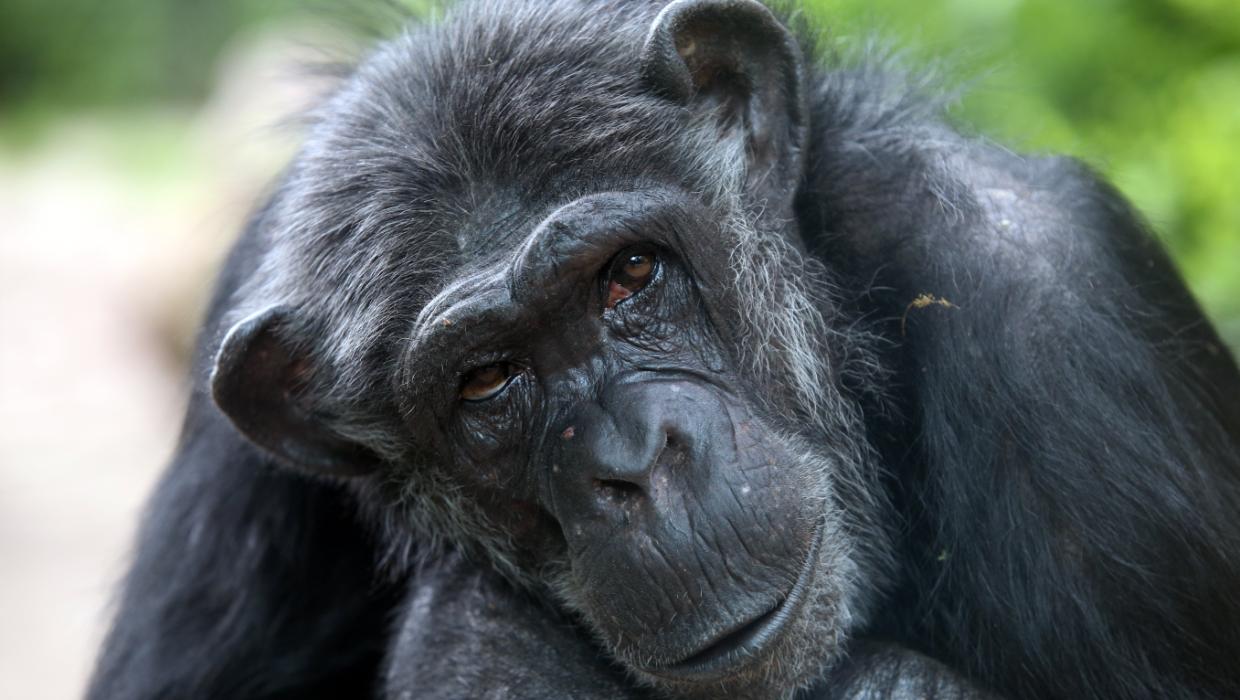Health
Chimpanzees Consume Daily Alcohol Equivalent to Beer, Study Reveals

A recent study published in Science Advances reveals that chimpanzees consume an average of 14 grams of ethanol daily, equivalent to a half-pint of beer. This surprising finding sheds light on the dietary habits of these primates, particularly their consumption of fermented fruit.
Researchers from the University of Stirling in the United Kingdom conducted the study, observing wild chimpanzees in their natural habitats. Their research indicates that the fruit, when left to ferment, produces significant amounts of alcohol, which the chimpanzees actively seek out.
Insights into Chimpanzee Behavior
The study’s findings highlight the complex foraging behavior of chimpanzees. The primates have been observed selecting specific fruits that are more likely to be fermented, demonstrating a level of discernment in their food choices. This behavior suggests that chimpanzees may be more aware of their dietary options than previously thought.
According to the study, the chimpanzees’ daily alcohol intake varies based on the availability of fermented fruit in their environment. This variation underscores how environmental factors influence the feeding habits of these animals. The research team noted that in some areas, particularly during certain seasons, the concentration of ethanol in fruit can be considerably higher, leading to increased alcohol consumption among the chimpanzees.
While the implications of this study primarily concern animal behavior, the results also prompt discussions regarding the evolutionary aspects of alcohol consumption across species. The researchers propose that understanding how chimpanzees interact with fermented fruit may provide insights into the human relationship with alcohol and its social significance in different cultures.
Wider Implications of the Findings
The implications of this research extend beyond chimpanzees. It raises questions about how other animals might also engage with fermented substances in their environments. Given that many species have been observed consuming naturally fermented fruits, this study could pave the way for further exploration into the effects of alcohol consumption in wildlife.
Additionally, the findings may impact conservation efforts. If certain habitats provide abundant fermented fruits, this could affect the behavior and health of chimpanzee populations. Understanding these dynamics is crucial for developing effective conservation strategies aimed at protecting both chimpanzees and their environments.
In conclusion, the study published in Science Advances not only highlights the fascinating dietary habits of chimpanzees but also prompts broader discussions about animal behavior and the evolutionary significance of alcohol consumption. The research opens new avenues for exploration within the fields of anthropology, biology, and conservation.
-

 World2 months ago
World2 months agoPrivate Funeral Held for Dean Field and His Three Children
-

 Top Stories2 months ago
Top Stories2 months agoFuneral Planned for Field Siblings After Tragic House Fire
-

 Sports4 months ago
Sports4 months agoNetball New Zealand Stands Down Dame Noeline Taurua for Series
-

 Entertainment4 months ago
Entertainment4 months agoTributes Pour In for Lachlan Rofe, Reality Star, Dead at 47
-

 Entertainment3 months ago
Entertainment3 months agoNew ‘Maverick’ Chaser Joins Beat the Chasers Season Finale
-

 Sports4 months ago
Sports4 months agoSilver Ferns Legend Laura Langman Criticizes Team’s Attitude
-

 Sports2 months ago
Sports2 months agoEli Katoa Rushed to Hospital After Sideline Incident During Match
-

 Politics3 months ago
Politics3 months agoNetball NZ Calls for Respect Amid Dame Taurua’s Standoff
-

 World2 months ago
World2 months agoInvestigation Underway in Tragic Sanson House Fire Involving Family
-

 Sports4 weeks ago
Sports4 weeks agoNathan Williamson’s Condition Improves Following Race Fall
-

 Entertainment1 month ago
Entertainment1 month agoJacinda Ardern Discusses Popularity Decline on Graham Norton Show
-

 World3 weeks ago
World3 weeks agoInvestigation Launched Following Boat Fire at Lake Taupō





















